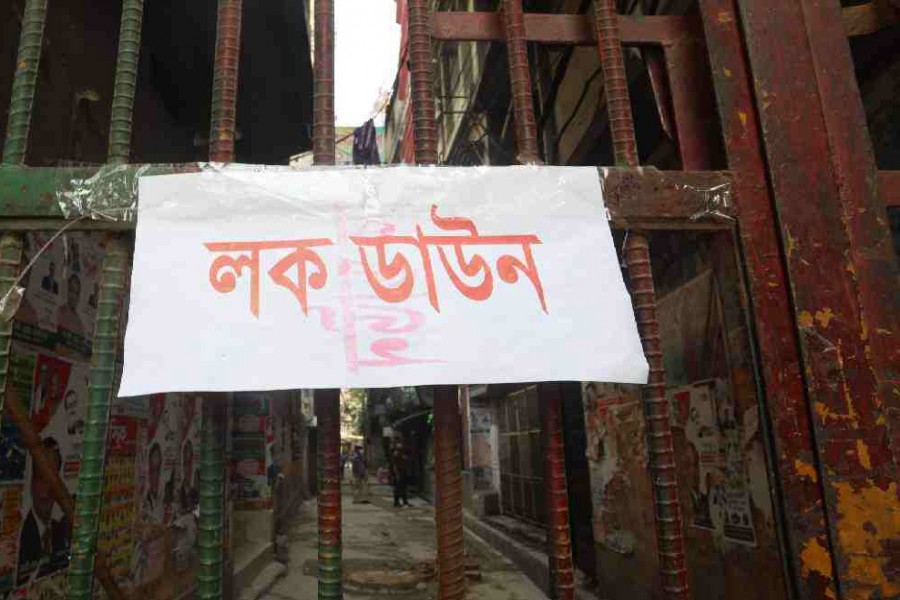Yet another week's extension of 'hard lockdown' is more likely to be symbolic than substantial. When shops and shopping malls are kept open, it is worse than a partial lockdown. Conceptually, this is contradictory. No wonder, health experts and epidemiologists have warned of double the rate of fatality and infection by the end of May next. Even during the earlier phase of restrictions when the authorities called it a general holiday instead of a lockdown, people's movement was more limited than this. All kinds of private vehicles except public transports run on the street creating tailbacks in peak hours. Still this has restricted to some extent mass movement of the public and consequently helped arrest the coronavirus spike. Although fatality from the disease refuses to drop down, the rate of those tested positive has also fallen significantly from 23 per cent for about a week to 12-13 per cent now.
Clearly, the impact of lockdowns cannot be downplayed. But allowing businesses to remain open for shorter hours may prove counterproductive. Between the two options of life and livelihoods, the latter is certainly getting priority. It could be otherwise if only an innovative and comprehensive plan were there. India is now paying for the folly of allowing public meetings as part of election campaigns and also giving the go-ahead to the KumbhaMela where millions congregate. Quite rightly, the Madras High Court remarked that the Election Commission should be charged with murder for its failure to stop campaign rallies by political parties flouting court orders. The EC is the only institution, according to the HC, responsible for the worst health crisis in India. Mercifully the authorities in Bangladesh have retracted from its earlier move to allow movement of public transports. But still the rush of shoppers to shopping malls can be a potential super spreader simply because the government's directive to maintain health protocols such as mandatory mask-wearing and physical distancing are conspicuous only by their partial and total absence respectively.
The lax lockdown could still see a drastic check on the spread of the virus if only the health protocols were strictly maintained. Many do wear masks but there are a significant number amid the crowd either in the kitchen market or shopping malls, who defy the minimum WHO-recommended guidelines. It is baffling to see that salesmen and salesgirls of outlets of brand commercial ventures and even pharmacies are reluctant to comply with such obligations. The level of awareness among the public certainly leaves much to be desired.
The extended lockdown will come under scrutiny and be put to further tests in the next couple of weeks to follow when Eid-ul-Fitr will be celebrated. With the opening up of commercial centres, people from village homes have started returning to the capital city and other urban melting pots. Now the question is if there will be a great exodus from the capital in particular during Eid vacation. Sure enough, the already affected transport operators will suffer even more if there will be no Eid rush. On the contrary, any such rush will be an invitation for an accelerated spike of the pathogen. Better it would be to contain the rush as much as possible and make an arrangement for financial support for the transport operators.


